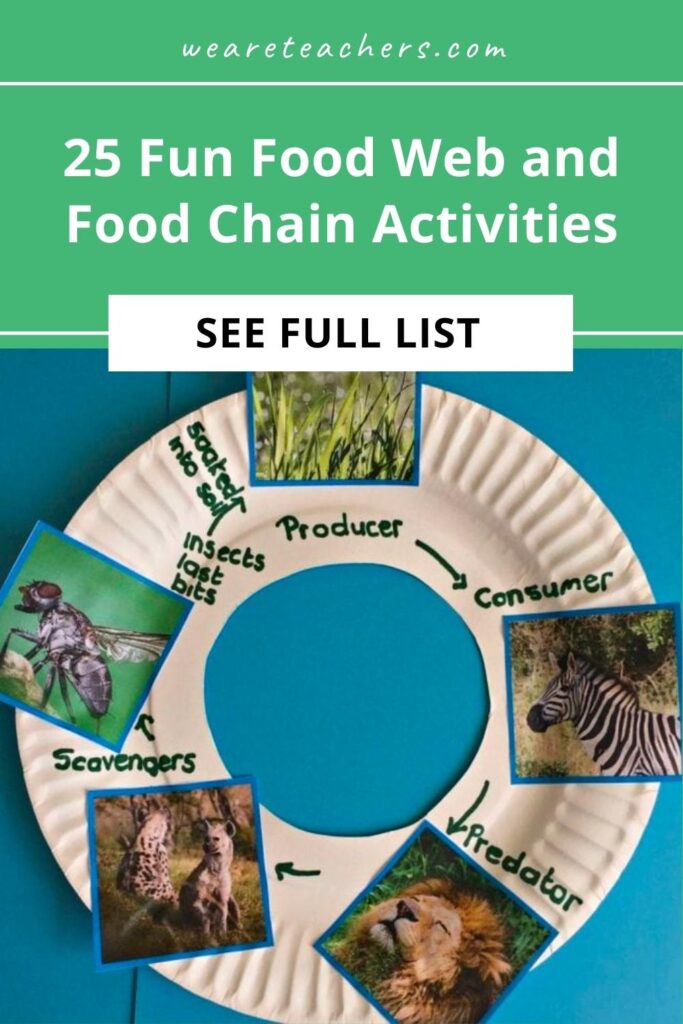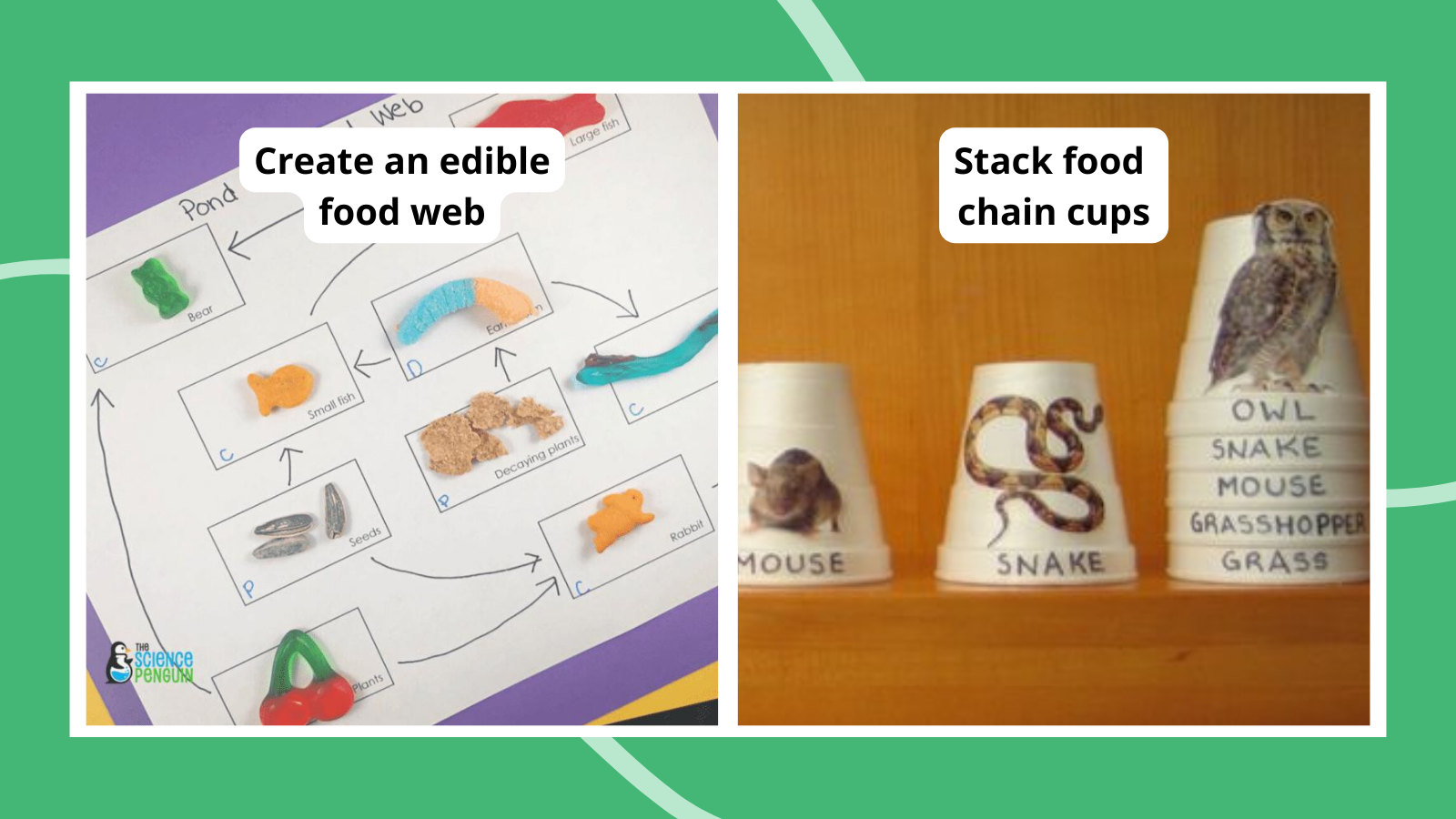Any kid who’s ever seen The Lion King certainly already knows a bit about food chains and food webs (“It’s the CIIIIRRRR-CLE … the circle of LIFE!”). It’s a topic that can be tricky to cover, but it can be done successfully with a little finesse on the part of teachers. These activities help students understand how important these concepts are, and why healthy food webs and chains are necessary for the whole planet to thrive. So try one of our food web or food chain activities with your class this year.
1. Start with an anchor chart
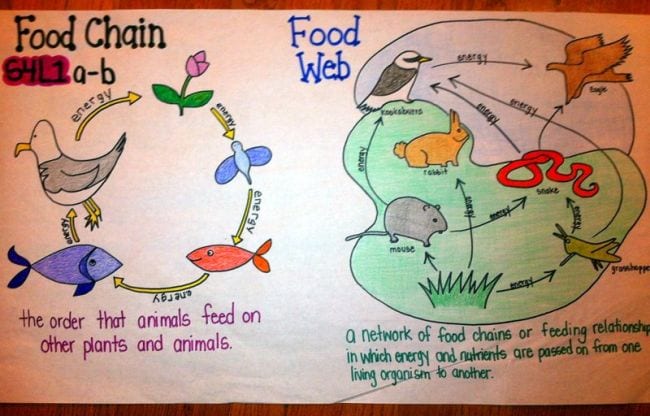
A food chain follows the direct path of energy between species. Food webs are more complex and involve a give-and-take between many organisms in an environment. This clever anchor chart helps explain the difference between the two.
2. Introduce food webs and food chains during story time

Books are a great way to segue into discussions about food chains and food webs. Here are some of our favorites.
- Trout Are Made of Trees (Sayre/Endle)
- Horseshoe Crabs and Shorebirds (Crenson/Cannon)
- Butternut Hollow Pond (Heinz/Marstall)
- Who Eats What? (Lauber/Keller)
3. Let The Lion King explain the concept
Seriously, Mufasa’s speech in The Lion King is one of the best explanations of food chains and webs around. This video covers the idea in more detail.
4. Put together a food chain puzzle
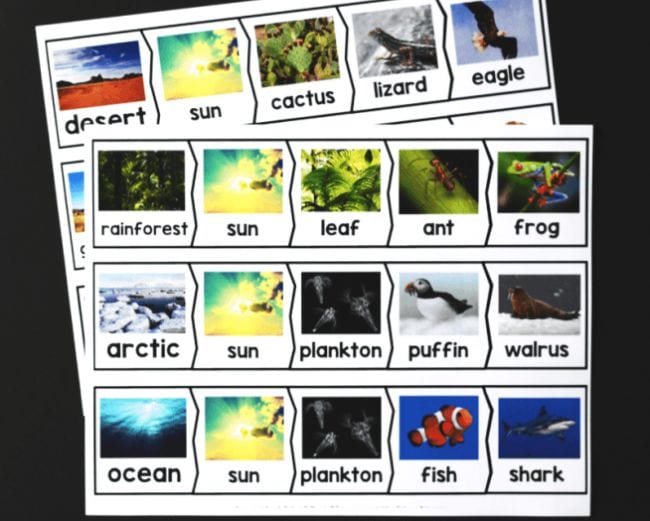
These free printable puzzles are a fun way for kids to learn a variety of food chains. (For virtual classrooms, try a digital version instead.)
5. Use a paper plate to show the circle of life
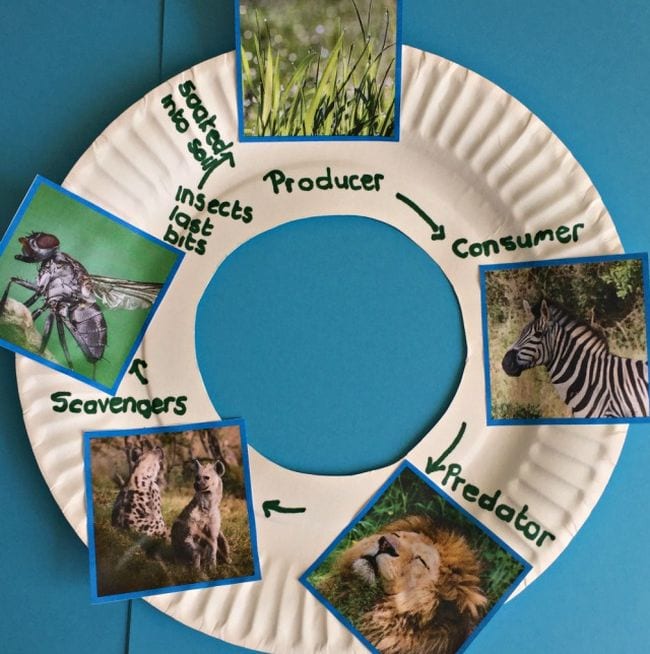
Turn kids loose with a stack of magazines, or print pictures from the internet. Then assemble them into food chains around a paper plate.
6. Try some StudyJams
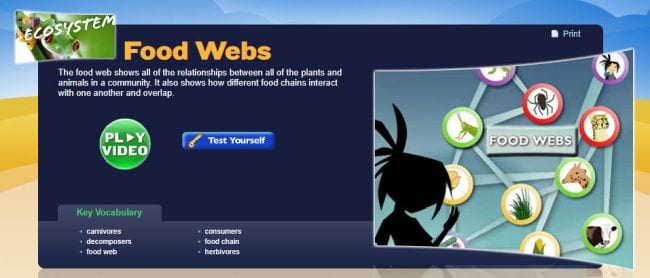
Scholastic’s StudyJams work for both in-person and online classrooms. Watch the entertaining video, then use the self-assessment tool to check kids’ knowledge.
7. Create food chain art
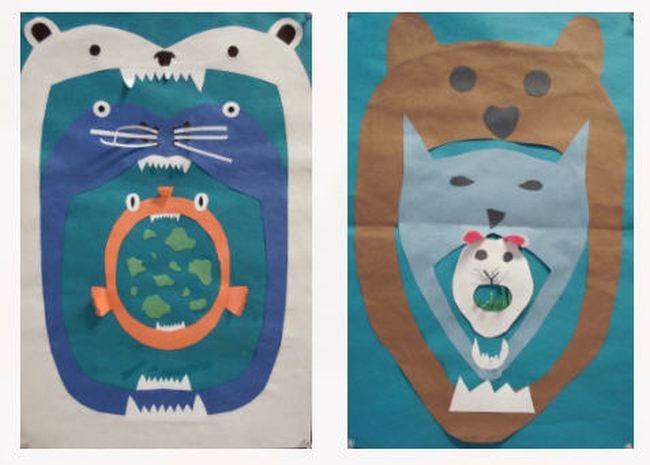
We love that this food web activity is not just a science project but an art project as well! Kids choose a food chain to illustrate, then represent each part of it inside the mouth of the next.
8. Construct food chain pyramids
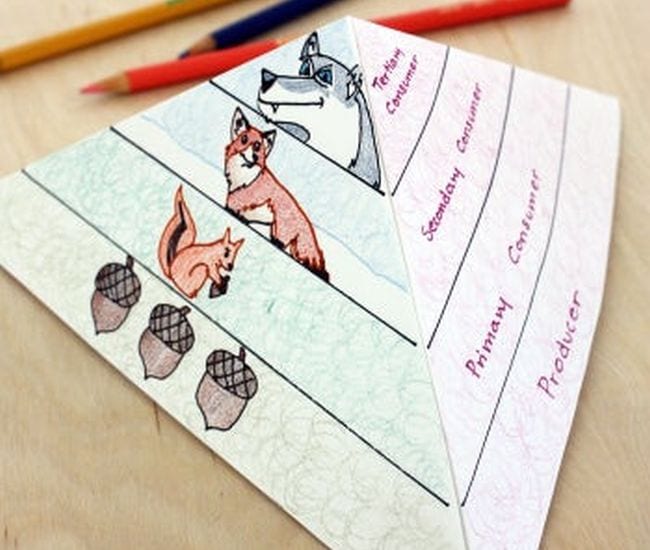
A pyramid can be a helpful way to look at food chains. Kids will have fun illustrating with their own artwork.
9. Have a digital food fight
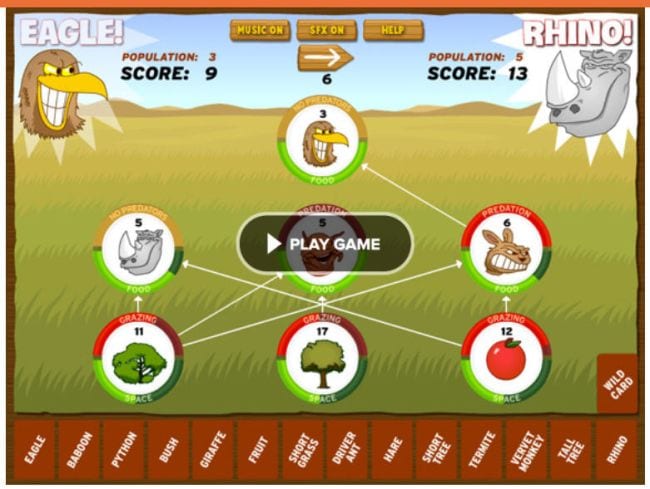
Use this interactive game with your whole class online or in person. Teams fight it out to see which animal can create the best food web and ecosystem for survival.
10. Assemble food chain links
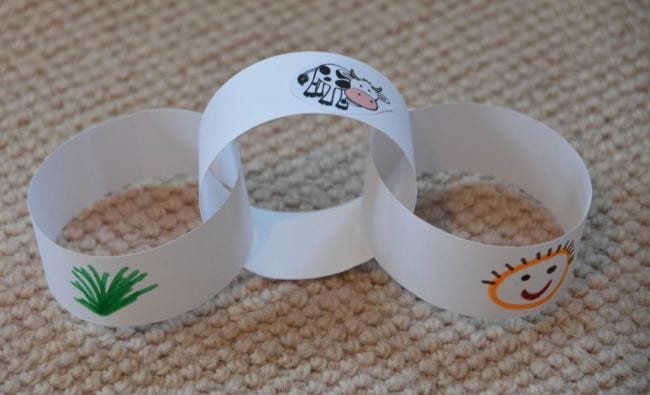
This very literal interpretation of a food chain is one that kids can easily do on their own, whether in the classroom or at home. All they need is paper, glue, scissors, and a little creativity.
11. Make food chain nesting dolls
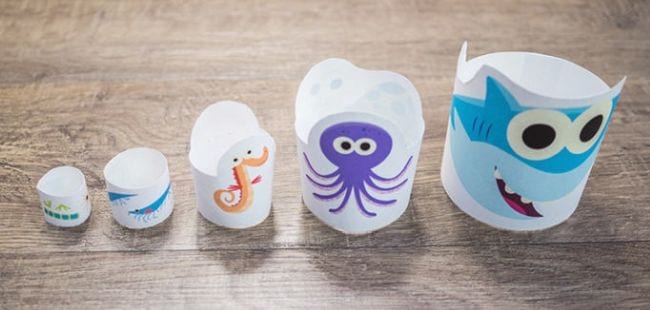
Visit Super Simple for a free printable to make these adorable ocean food chain nesting dolls. Then challenge kids to choose another ecosystem and create their own.
12. Stack food chain cups
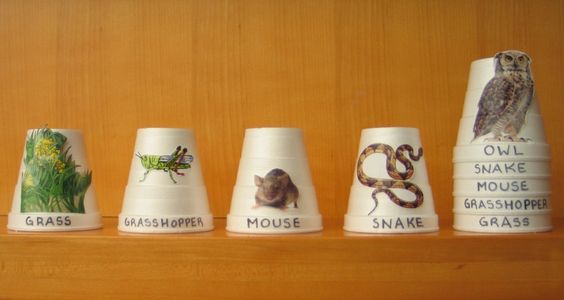
Each of these cups represents one part of a food chain. Stack them to show how they all fit together. Challenge kids to see who can stack their cups correctly in the fastest time!
13. Watch a food web video
This food web activity may not be hands-on, but it is a good way to introduce the concept to kids. This video does a terrific job teaching them about food webs and chains and will surely be a hit with kids.
14. Connect the food web with rubber bands
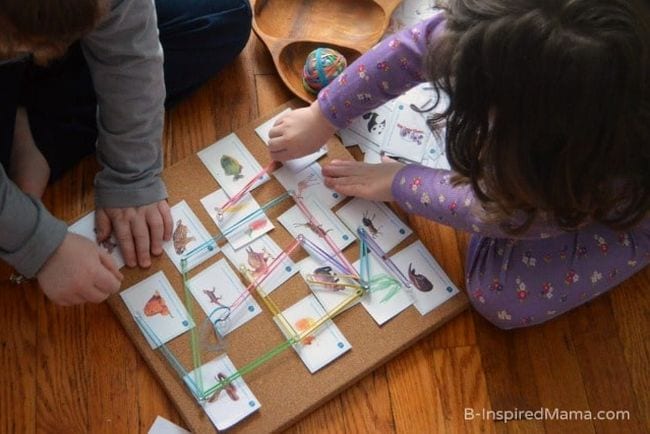
Use a bulletin board, pushpins, and rubber bands to demonstrate how interconnected a food chain can become. Use this in a classroom science station, or complete the activity together as a whole class virtually.
15. Display the food web with model animals
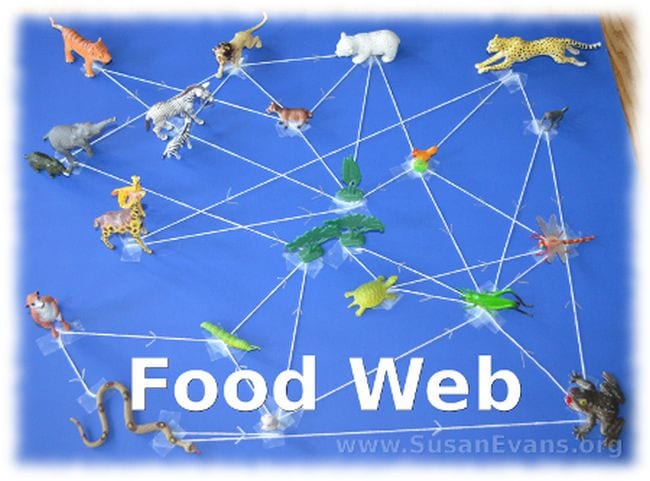
Gather up all those toy animals and put them to good use! Try using different colors of yarn to represent predators, prey, scavengers, and more.
16. Turn the food web into a marble maze
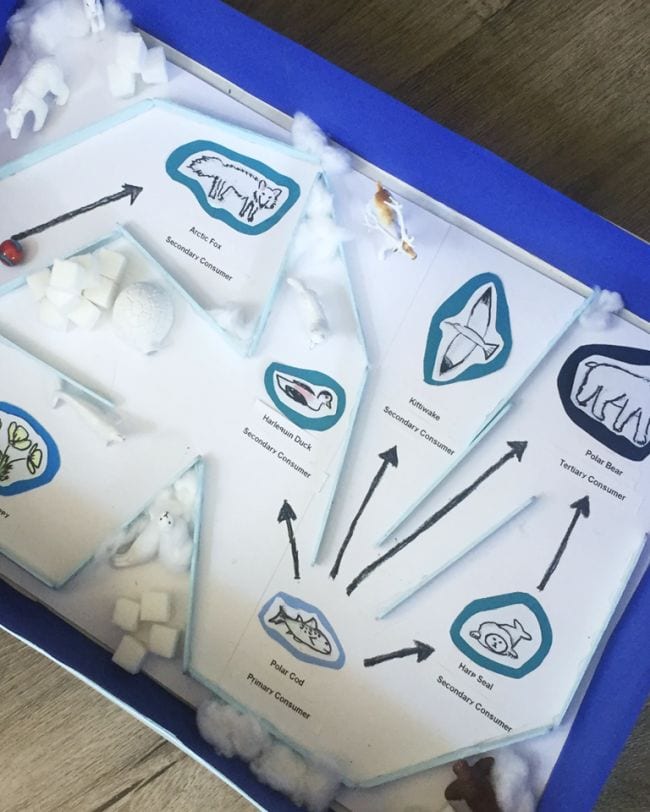
We love how this activity turns a biology lesson into a STEM challenge. Kids will get a kick out of playing with their food web marble mazes, so the learning never stops.
17. Walk a life-sized food web
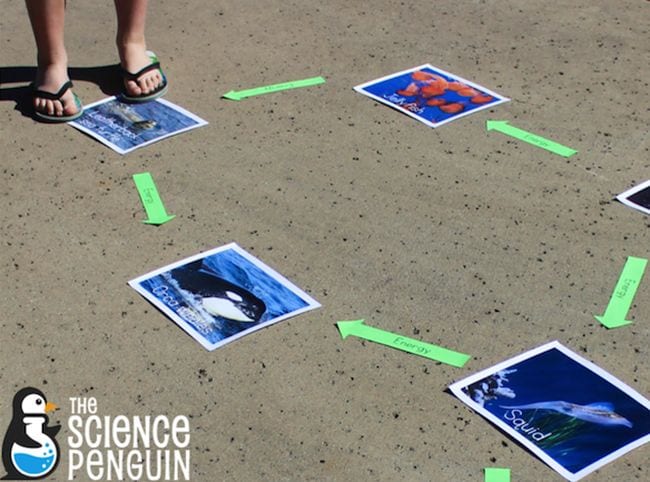
Head out to the playground for a socially distanced interactive food web game! Lay out cards showing all the organisms in a food web and have kids help place arrows for the flow of energy. Then, kids can walk along the web by following the arrows to really understand how it all interacts.
18. Play a food web PE Game
A science lesson that also doubles as a PE game? Yes, please. This food web activity gets kids moving, which will help reinforce the concept of food chains, especially for kids who have trouble sitting still!
19. Create an edible food web
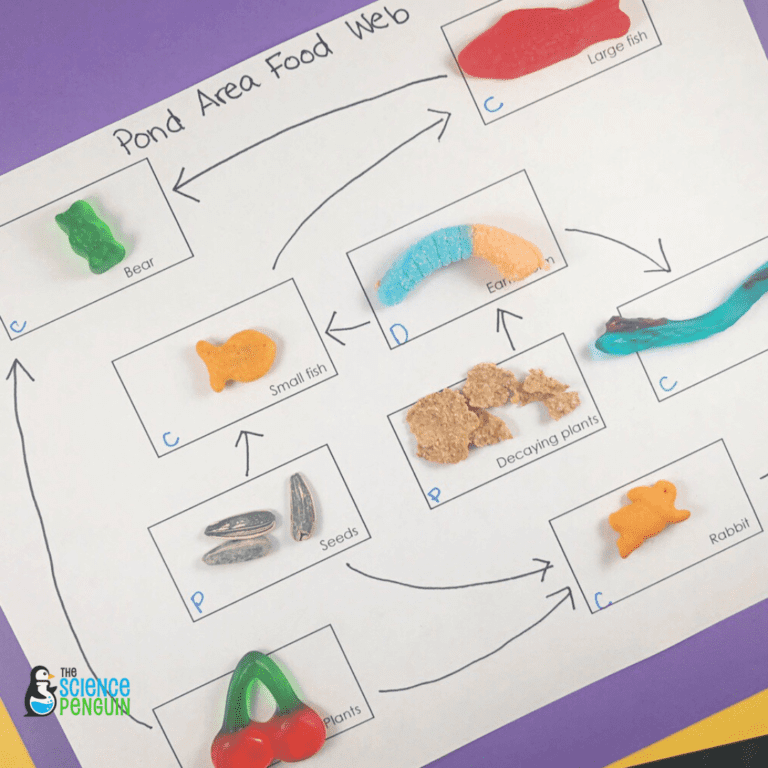
There are few things kids love more than snacks. Make food webs come alive with snacks that stand in for various plant and animal life. You’re definitely going to want to have extra goodies on hand since kids will be sure to snack while learning!
20. Use toys to create a food chain
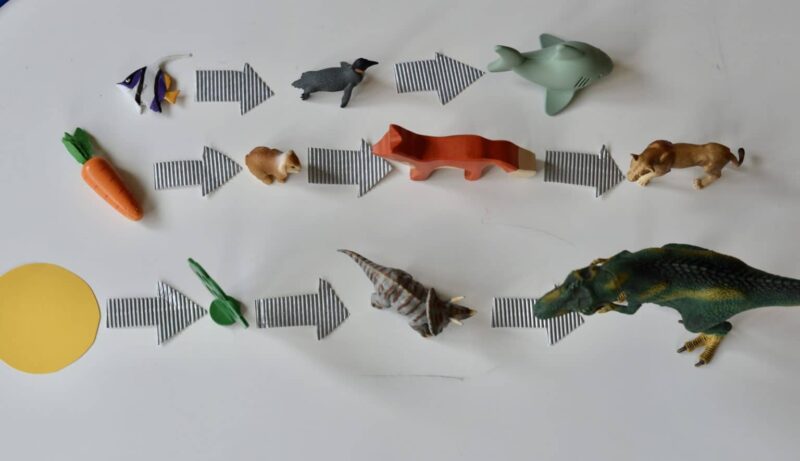
This is another food web option that utilizes toy animals. Before doing this activity, you will want to gather all those little animal and food toys you have lying around. Once you’ve gathered your toys, add in some arrows and a sun and have your students show food chains. This food web activity will feel more like playing than learning!
21. Create a huge classroom web
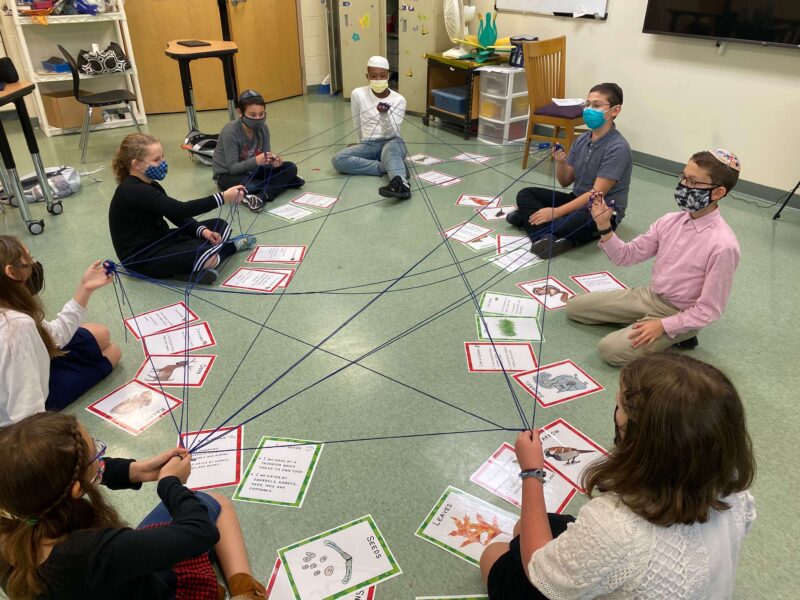
Assign each student a plant or animal and then have one student start holding a ball of yarn or string. Have students connect their string to whoever they eat and so on and so forth until a web is spun!
22. Color and cut out foldable food chains
These puppet-like fold-outs are the perfect way to introduce the concept of food webs while also working on some gross motor skills. Kids will have fun coloring, cutting, and pasting these templates.
23. Fill some pockets
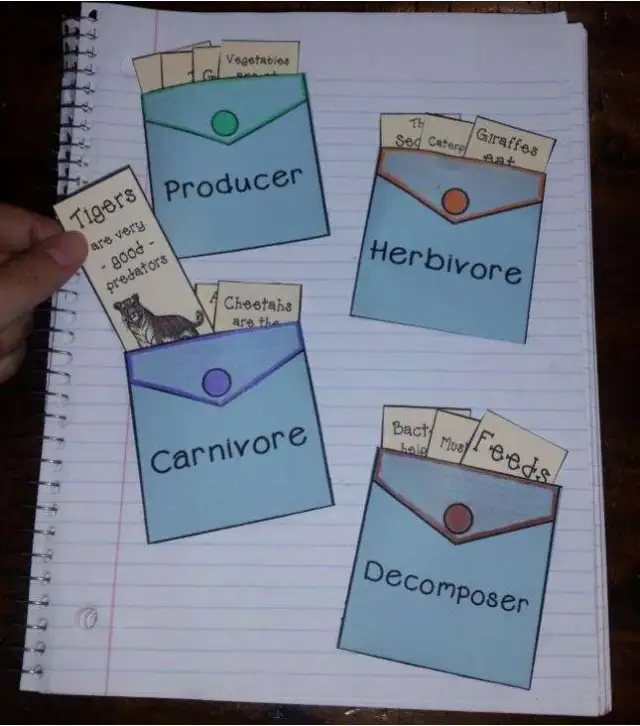
These food chain pockets are so cute and so useful in teaching kids the various categories for food chains.
24. Build a food chain chain
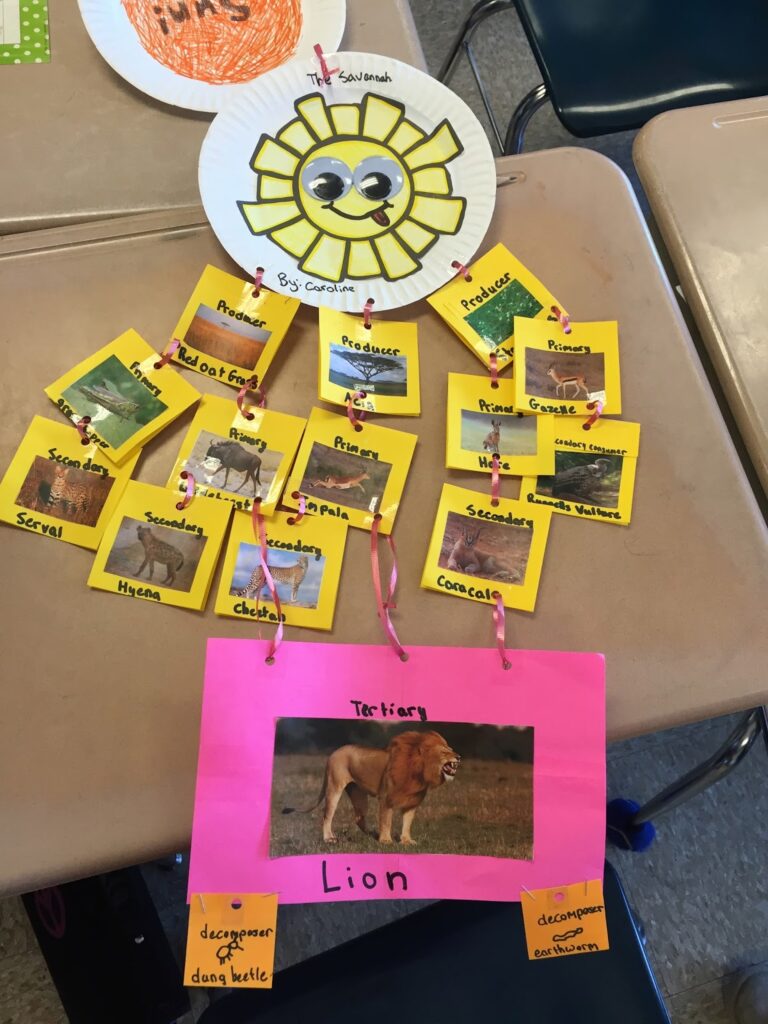
These food chain chains are the perfect project for kids to create during a food chain and web unit. First, have them choose a biome and then create a chain that shows the transfer of energy from producers to consumers and decomposers.
25. Display a food web bulletin board
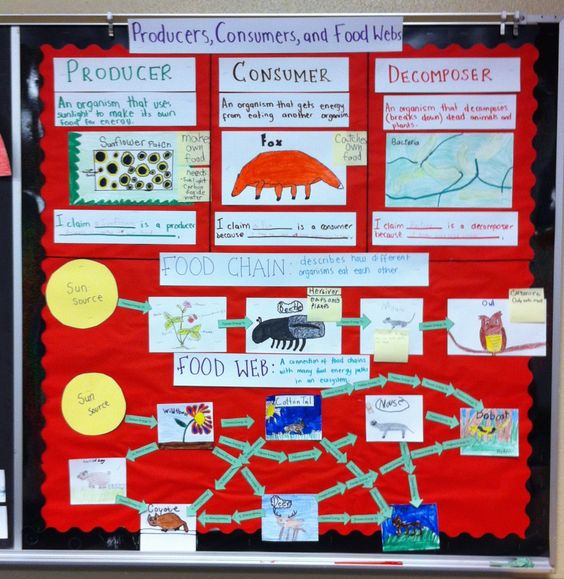
Bulletin boards are a great resource in a classroom for reinforcing information since they are on display all day. Have your students help create the plant and animal cards so they can feel like they had a hand in the process!
Looking for more biology and ecology ideas? Try these 20 Wild Ways To Explore Animal Habits With Kids.
Plus, the Best Nature Webcams for Science Learning at a Distance.
